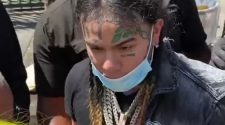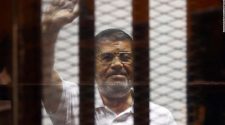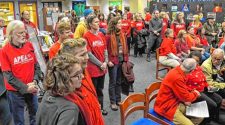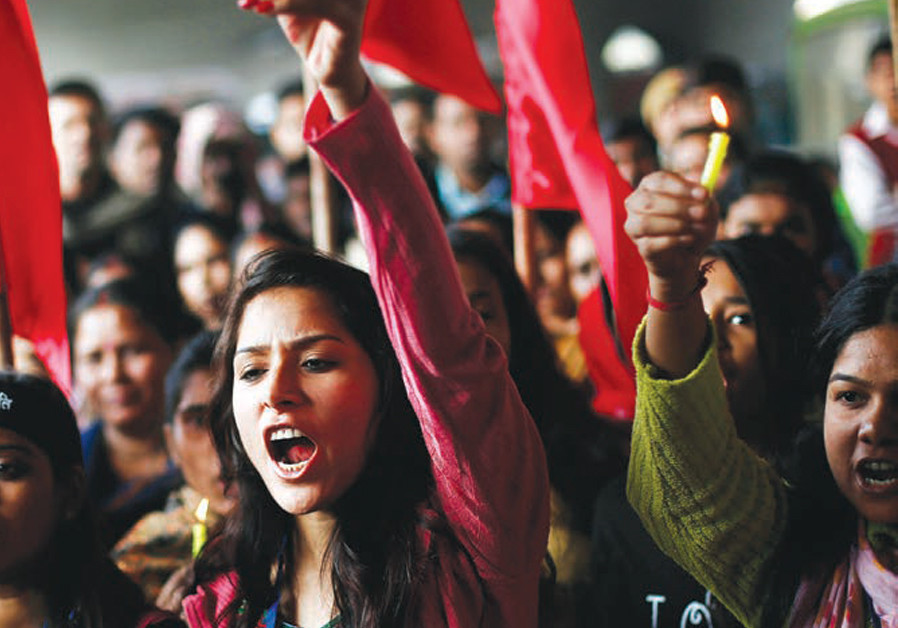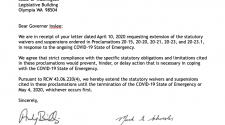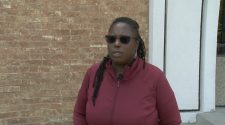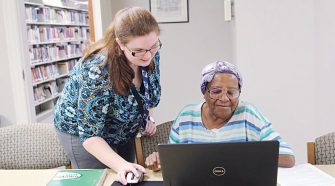“It has been almost three years now, but there has not been even one day, when I have not been haunted by what happened,” Indian author Sohaila Abdulali recounted in an article published for an Indian women’s magazine in 1983.
The article described Abdulali‘s horrific experience of being gang-raped in India at the age of 17. When hiking with a friend in the outskirts of Mumbai, they were attacked by four men who forced them up the mountain, where they beat them and raped Abdulali several times. Three decades ago, rape was certainly not a topic discussed in Indian society. It didn’t stop Abdulali, however, from speaking up. Encouraged by the support she received by her family and feminist groups in India, she broke the silence in a society that did not welcome this sort of speech, and, at the same time, was infected with sexual harassment.
“Insecurity, vulnerability, fear, anger, helplessness – I fight these constantly,” Abdulali wrote in 1983. “Sometimes when I am walking on the road and hear footsteps behind, I start to sweat and have to bite my lip to keep from screaming. I flinch at friendly touches, I can’t bear tight scarves that feel like hands around my throat, I flinch at a certain look that comes into men’s eyes – that look is there so often.”
Her voice emerged as a loud cry in a vacuum that seemed perpetually sealed in silence. It stirred discussion, but quickly died out. Some three decades later, another disturbing gang rape case – this time in New Delhi – shocked India and the world. A 23-year-old student was raped by over 40 men in a moving bus, who abused her body in every single possible way, leading to her death.
Abdulali’s story resurfaced on social media amid the uproar in India, which led thousands of protesters to the streets to demonstrate against sexual violence. A torrent of reactions led back to Abdulali, who was perplexed about having inadvertently turned into a symbol of rape over three decades after her own. Abdulali responded to a deluge of responses in an op-ed in The New York Times calling out for families and communities to have empathy and support for the victims.
“We need to put responsibility where it lies: on men who violate women, and on all of us who let them get away with it while we point accusing fingers at their victims,” Abdulali wrote.
She reemerged as proof that the tragic event, and thousands of others who hadn’t been cruel enough to catch the attention of the media but had, nonetheless, destroyed lives, could have been avoided had the discussion been approached with the seriousness it required. If both the public and authorities had recognized the courage it took the 20-year-old Abdulali to shatter the silence around rape – the deep scars, shattered lives, trauma and death that would have been prevented.
“It always felt strange when I hear that I am brave,” said Abdulali. “The ‘courage’ to talk about it, though, was maybe because I was young. There was a certain teenage defiance about publishing a story about it. And it was before the Internet. I never thought the entire world would one day read about it, but only a group of Indian feminists whom I met during those days.”
THE BRUTAL stories of gang rape might read like a horrific headline from a far-away place like India, but the core of the problem, which is the violation against a woman’s body, is a reality within all segments of Israeli society. It is the one crime where the victims’ common denominator is not defined by economic status, education, religion or race, but mostly by the silent shame following the abuse.
According to the report on “Sexual Offenses against Women,” submitted to the Knesset’s Committee on the Status of Women and Gender Equality, police opened 6,123 cases for sexual offenses in 2017, 7% more than in 2016. Sexual harassment cases increased by 13%.
Among women who experienced harassment, two-thirds were between the ages of 20 and 34, 22% were between 12 and 18 and 11% were children.
But according to the Central Bureau of Statistics’ (CBS) Personal Security Survey, only 3% of victims report their abuse to the police. In total, the CBS estimates that 121,500 people experienced sexual assault in 2017.
The reasons victims don’t report to the police include the belief that the injury was a minor incident, that they would not be able to deal with such cases and/or that the police would not be interested in treating them. The low rate of report, however, cannot be blamed only on the victims’ views of the police, but a wider and much deeper response from society as a whole when dealing with cases of sexual assault.
The goal of the Jerusalem Rape Crisis Center (JRCC), one of the leading human rights organization in Jerusalem dedicated to gender equality and fighting sexual violence, is to change the approach to sexual abuse.
Founded in 1981 as a result of a group of women who wanted to support other women who became the victims of sexual violence, the JRCC operates on two fronts: Giving assistance, support and guidance to survivors of sexual violence and their families, and providing education to youths and the general public to raise awareness about sexual violence and how to prevent it.
“Professionals have to know how to identify and talk appropriately to the victim,” said JRCC’s executive director and former judge, Sharon Keisar. “It is of utmost importance that whoever approaches the victim won’t doubt and blame them. Survivors should not be blamed or even asked questions in harsh way. Questions must be asked in a sensitive manner, in a way that recognizes the complexity and difficulty of the situation.”
Rape is the only crime where the victims are the ones who carry the guilt.
From liberal to conservative countries, victims of sexual abuse carry the burden of shame and guilt and navigate in their day-to-day lives in a world that has only just started to broach the subject. The chronic lack of support and sensitivity toward victims are connected to the intrinsic inability in all layers of society to approach the subject efficiently. Rape is a taboo subject that the public has always shied away from.
“One of the main problems is that if you are assaulted and remain silent about it, or if you talk and get the inappropriate response, the damage and trauma are immense,” said Keisar. “The damage from sexual assaults can be suicide, mental illness and hurting oneself. The main problem with this kind of assault is that the victims are still ashamed, they blame themselves. Also, the response of the surroundings is that of blaming, of not believing in the victim.”
Another common denominator, more pronounced in more conservative societies, is the link these communities make between assault and honor and virtue, which deepens the victim’s shame. The abuse, even if exposed within the family framework, is baffling. Sexual abuse and “stained honor” become synonyms, and the victim is left to bear not only her own pain and shame, but that of her entire family.
In an article published by the Middle East Institute in 2014, Yasmin El-Rifae pointed out the flawed rationale behind the legislation that had just passed in Egypt, the first one that criminalized sexual harassment.
“The law does not acknowledge an individual’s right to body integrity and freedom from harassment and abuse,” El-Rifae wrote. “Rather, the language employed on the books and in court rulings focuses on the importance of public morality and maintaining the integrity of the family unit.”
Egypt has been ranked by a Thomas Reuters Foundation survey as the worst country in the Arab world to be a woman, and according to a UN survey from 2013, 99.3% of women experience harassment. Yet its legislation still focuses on the shame that such an event could bring to the family, instead of the endemic problem of women’s abuse.
Israel’s Prevention of Sexual Harassment Law (5758-1998), states differently. The purpose of the law is “to prohibit sexual harassment in order to defend human dignity, freedom and privacy and in order to promote equality between sexes.”
To assuage the shame of victims connected to family honor, however, remains a challenge despite the law’s focus on personal dignity and freedom. A study conducted by David H. Rosmarin and colleagues at Harvard Medical School and Yeshiva University in 2018 showed that formerly Orthodox Jews – meaning those who have left their tight-knit communities – were four times more likely to report involuntary childhood sex. One of the reasons might be that inhibitions about broaching the silent barrier around the subject are lessened.
“An entire cultural shift is needed,” Abdulali said. “The view that women are inferior needs to be changed. The first word that comes to mind when I think of how to prevent sexual assault is respect. To respect others. To respect women. I don’t know, maybe this sounds like a complicated idea, but it is very simple.”
“The goal of our program is to bring change to society,” said Alma Keness, one of the coordinators of JRCC’s Educational Program.
“We need to go a few steps back and think, “‘How can we prevent it at all?’”
According to Keness, the program uses different paths for bringing about change. One of the ways is to break sexual abuse myths, such as that it might be connected to the way one dresses, or that perpetrators are only strangers (in most cases in Israel, the crime is committed by a person close to the victim).
“Another path is to educate about mutual, sensitive and communicative sexuality,” Keness claimed. “Healthy sexuality and sexual abuse are the two extremes of the spectrum. We want to show cases that in a good relationship between two people, for example, there can be moments when the communication deteriorates and hurtful situations might arise,” she said, adding, “Throughout our lives we can find ourselves on either end of the spectrum. That’s why it is so important to engage in dialogue about healthy sexuality and relationships.”
NOT ONLY women become victims of sexual abuse. Of reported incidents, 79% were women, leaving a very real 21% who are men.
A study published in 2000 by Moshe Schein and colleagues from the Hadassah-University Medical Center in Jerusalem showed that religious males in Israel were 3.3 times more likely to experience abuse compared to secular males, but religious women 2.4 times less so than secular women. Sexual abuse cases in gender segregated spheres, as commonly found in religious societies, question assumptions of the intrinsic connection between rape and patriarchal societies.
“Patriarchy does not necessarily mean it is against women,” Abdulali asserts, “but about men feeling the right to take, to conquer someone.”
Agency is one of the fundamental concepts stressed during JRCC’s programs.
“To inform children, youth and the public about the meaning of sexual abuse is not enough,” Keness said. “They need to know what they can do, how they can prevent it, how they can help the victim.” In a city like Jerusalem, where a myriad of cultures and different levels of religiosity meet, to approach the subject at all might seem like an impossible challenge. Keness, however, claims that this notion is not correct. Through the workshops, children and youth of all ages and backgrounds were open and eager to discuss the subject. Out of curiosity and previous knowledge, questions pour out from them. “The only way to deal with it is, first and foremost, to talk about every single nuance around sexuality.
FOR REASONS beyond comprehension, victims have carried the physical and psychological burden by themselves, intensified by unbearable shame and guilt for acts done against their body. Preventing rape and dealing with the consequences of the act, however, is a societal responsibility. To face reality, educate ourselves, exercise and hone respect to others, develop sensitivity toward those abused, and encourage honest dialogue in every circle are the responsibility of each of us. Above all, abolishing the notion that it only happens somewhere else out there is of utmost importance for eradicating such acts from our society.
“Let us stop treating rape as the problem of other women,” the then 20-year-old Abdulali wrote. “Let us acknowledge its universality and come to a better understanding of it. Until the basis of power relationships in this world changes, until women cease to be regarded as the property of men, we will have to live in constant fear of being violated with impunity.”
Join Jerusalem Post Premium Plus now for just $5 and upgrade your experience with an ads-free website and exclusive content. Click here>>



